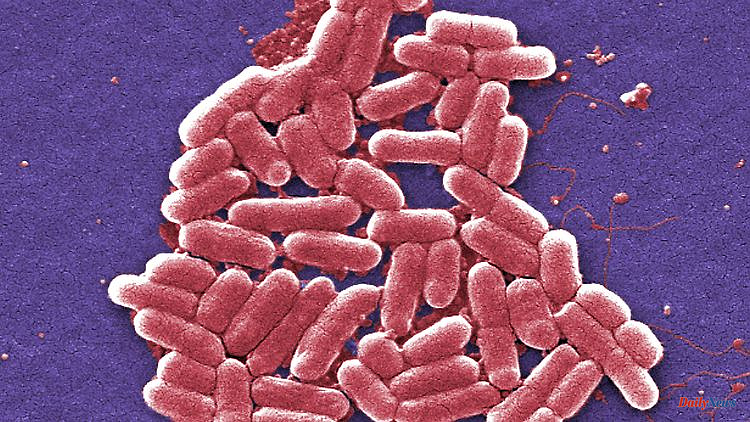Salad is not even that healthy - at least if you buy it ready-made in the supermarket. According to the Federal Office for Consumer Protection, like many other foods that are often eaten raw, this is the ideal breeding ground for pathogens. Even those who prefer it sweet should be careful.
Food inspectors found pathogenic bacteria in almost half of the samples of prepackaged lettuce examined. So-called presumptive Bacillus cereus were detected in 200 of 428 samples in 2021 - these can lead to vomiting and diarrhea, as the Federal Office of Consumer Protection and Food Safety (BVL) in Berlin announced. Since salads are eaten raw and the germs are not killed by heating, the BVL advises sensitive people against packaged salads.
Meat eaters should also be careful when choosing their food. In 2021, the inspectors found listeria and so-called STEC bacteria in minced beef. E. coli bacteria are part of the healthy intestinal flora in humans and animals. STEC bacteria - Shiga toxin-forming E. coli - are disease-causing variants. If such bacteria get into the body, they can trigger intestinal inflammation, which can be severe.
STEC bacteria were detected in 28 of 420 ground beef samples. The experts found listeria even more frequently: 88 of 410 samples examined - i.e. almost every fifth - were positive. Infections with these bacteria are comparatively rare, but listeriosis is one of the most serious food-borne diseases, according to the BVL.
Just in time for Christmas, the BVL warned people to only eat baked cookie dough and not to nibble on the raw dough. STEC bacteria were found in around 10 percent of the ready-made dough and baking mixes examined in 2021. If fully heated, these would be killed.
However, the Federal Office for Consumer Protection had at least one piece of good news for Christmas: none of the 53 toys examined contained carcinogenic PAHs, polycyclic aromatic hydrocarbons. "We see a very pleasing development here," said Georg Schreiber, department head at the BVL. "The manufacturers have now fulfilled their duty of care, which benefits all consumers."












